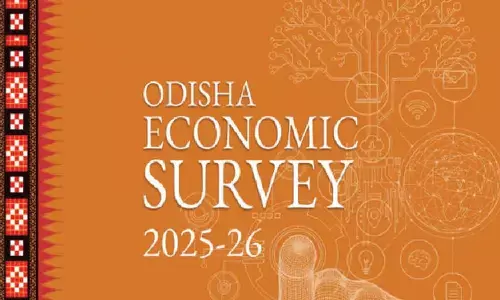New technologies helping reshape curriculum for marketing & advertising

New technologies helping reshape curriculum for marketing & advertising
There has been a slow and steady change in how brands carry out their operations, especially after the pandemic.
There has been a slow and steady change in how brands carry out their operations, especially after the pandemic. The focus has shifted to the virtual world as e-commerce industries expand and ed-tech and health-tech industries solidify their footing in the market. These changes in the work landscape of the country have necessitated subsequent changes in the marketing strategies utilised by brands to increase their customer base.
The focus now is on the efficient and effective use of technology to reach as many people as possible and ensure maximum conversions. Keeping this in mind, the curriculum for marketing and advertising has changed drastically, especially in the case of ed-tech companies. Here are some of the changes in the field due to increased technological sophistication, which has led to a revamping of the existing curriculum.
Increased reliance on Big Data, AI, and ML
Devising marketing strategies usually warrant a thorough analysis of the needs and preferences of the target audience, the demand for particular products, inventory records, and supply chain optimisation to reduce wastage and unnecessary expenditure. Doing this analysis manually can be cumbersome and has a greater scope of error. Brands are thus widely employing AI and ML to summarise and analyse data for better decision-making.
AI is also essential in marketing campaigns on meta platforms like Facebook and Instagram. They help deliver the right message based on their previous searches, which helps carry out predictive analysis of customer demand and popular trends and generate Product recommendations.
Once a sale is made, the next step in marketing and advertising is to ensure repeat purchases to secure a large and reliable customer base. AI and ML are helpful here too. Chatbots and automated messages are excellent for maintaining communication with clients and ensuring that their complaints are dealt with promptly and diligently without much pressure on human resources.
Omni channel communication
People are spending more hours online than they have ever done before. This is especially true for the younger population. This means that brands have more avenues for reaching out to customers and maintaining a steady flow of communication. For example, most brands are moving towards convergence between their offline and online stores. Customers, through the use of IoT-enabled devices, can find the right product or fit for themselves. The brands can also inform them of the availability of items in their offline stores or about offers and discounts through mobile notifications.
Customer communications are usually carried out through channels like audio messaging, video content, and posts on social media. This enhances the brand's visibility and ensures that the customer is always engaged and reminded about the products they may be interested in.
Blockchain technology
Blockchain is a shared virtual space that records all transactions and tracks tangible or intangible assets. Therefore, it allows businesses to trace the product, campaign, or advertisement and its reach and impact. It also helps secure data and its efficient utilisation, thus enhancing the customer's confidence in the brand.
Marketing and advertising today are heavily dependent on technology. Experts in the field are changing the traditional channels of reaching customers to ensure that their companies or brands remain relevant. Contrary to the popular misconception, this has not diminished the need for human resources. It has boosted the demand for skilled professionals well-versed in tech innovations. Remember that while AI takes over menial job requirements, it has to be managed by trained individuals. In light of this, educational and upskilling courses in marketing and advertising must be revamped following the industry specifics.
(The author is a Co-Founder & Co-CEO ;Akshay Marwah. Co-Founder & Co-CEO, AAFT Online)








